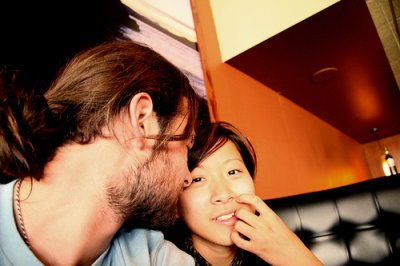What is an “Anxious Attachment Style”?
 Dr. Sheri Jacobson
March 8, 2023
Dr. Sheri Jacobson
March 8, 2023

By: Kevin Jaako
by Andrea M. Darcy
Do your romantic relationships leave you an anxious mess? Do you find yourself worrying about relationships with colleagues and friends? You might have anxious attachment disorder.
[In pieces over a relationship? Need support? Book affordable online therapy and get help fast.]
The basics of attachment theory
Attachment theory believes that we are all biologically wired to relate to form connections, or ‘attachments’, with others.
And in order to be an adult who relates to others easily we need to have had a solid, healthy ’attachment’ from birth to seven years old. This means that we had a parent or primary caregiver we could rely on for safety and unconditional love.
And what if this is not our experience? If nobody took good care of us, if we had a parent who was sometimes loving but sometimes punished us for our needs? If a parent was unwell or an addict, if we suffered abuse and neglect?
We find ourselves an adult with ‘attachment issues’. Our childhood gives us beliefs about love and expectations about relating that we unconsciously continue to use, even when this “attachment style” is faulty.
And one very common type of attachment issue is ‘anxious attachment disorder”, also called “anxious preoccupied”.
What is anxious attachment style?
If we have anxious attachment disorder we long for love and closeness. But relationships don’t leave us feeling accepted, happy or fulfilled.
Well, perhaps at first. But soon enough, the relationship anxiety starts. We don’t trust the other person, we bend over backwards to try to win their love, but feel not good enough, rejected.
Anxious attachment vs secure attachment
It is easier to understand anxious attachment if we first understand what healthy attachment, or ‘secure attachment’, is.
Those who are securely attached find emotional closeness easy, can depend on others and be depended on without feeling anxious, and don’t mind what others think of them. They have good self-esteem and feel fine when away from their partners or friends.
Symptoms of an anxious attachment style
If you have an anxious attachment style you will:
- long for a deep, strong connection but instead feel disappointed by others
- feel others don’t want the sort of closeness you long for
- think you care about others more than they care about you
- find the other person doesn’t communicate as much as you need
- be sure you give more than you get
- have low self-esteem and sometimes feel unworthy of love
- feel uncomfortable around the other but highly anxious when separated
- possibly feel dependent on the other person, terrified to be without them (even if you are unhappy)
- suffer fits of anxiety that stop when the other person responds to you
- secretly blame yourself if the other person isn’t giving you what you need
- be very emotional or have ‘emotional dysregulation’, aka, your emotions swing wildly
- tend to be impulsive in relationships.
Still not sure? A big sign you have anxious attachment disorder
If you aren’t sure, look to the sort of people you choose to have relationships with.
People with anxious attachment disorder do not naturally gravitate towards those with secure attachment. Instead, they tend to attempt close relationships with those who have an ‘avoidant attachment’ style.

By: Ali Edwards
This means you are attracted to those who are emotionally unavailable. They value independence, don’t like too much intimacy, and aren’t interested in talking about their emotions, which they often hide or deny. They might not even be sure they want to be a relationship at all.
Why would I have anxious attachment disorder?
Again, it relates back to the sort of care you received as a child.
If you have anxious attachment you would have had an unreliable primary caregiver. They might have been very available and loving one day, but not the next. Perhaps they had their own psychological issues that distracted them. Perhaps you had to ‘earn’ their love, too, by being good, quiet… in other words, suppressing yourself.
So even if on the surface your childhood seemed good, behind doors you were not being offered a home where you always felt safe, or love that you could rely on no matter what you did or said.
Often those with anxious attachment report a codependent relationship with a parent. This can mean a parent treats the child like an adult, or makes it clear to the child that the child is responsible for the parent’s happiness. It might be that your parent was actually ill, or an addict, or unstable, and you took care of him or her.
Treatment for anxious attachment
Cognitive behavioural therapy is a short-term therapy that can help you recognise and question the dramatic thinking and negative thinking relationships cause for you. CBT helps you stop reacting to such thoughts, or allowing them to spiral you into low moods.
Otherwise, read our article on “Types of Therapy That Help With Relationships” that outlines all the therapies you can benefit from.
Tired of difficult relationships and want help? We connect you with London’s top relationship therapists. Not in London? Our online booking platform connects you with therapists UK-wide, and online therapists you can talk to from any country at all.
 Andrea M. Darcy is a health and wellbeing expert, trained in person-centred counselling and coaching. She often writes about trauma, relationships, and ADHD, and advises people on how to plan their therapy journey. Find her on Instagram @am_darcy
Andrea M. Darcy is a health and wellbeing expert, trained in person-centred counselling and coaching. She often writes about trauma, relationships, and ADHD, and advises people on how to plan their therapy journey. Find her on Instagram @am_darcy





Hi, I happened to come across this writing about anxious attachment. I did not know that this kid of issue arises due to lack of attention and love and probably time between the age of 0 to 7 years, I am 70 amd grew up with parents that loved us and treasued a home and family environmet. It was true love which all four of us 1 brother and 2 sisters took forgranted. None of us had a Phd just a normal collage or university degree. This article helped u uderstand why we all grew up the ranks and never ever had a problem with finding a job. It was because we managed eerything with love – we were confident – we wee people one can depend on – we followed what we promised.
Unfortunately few parents can give enough time to their children these days – so I can imagine how some children feel. It is perhaps whay we have so much family unrest behind closed doos these days.
Anyway I just thought i should express my thoughts and my gartitude ad say thank you too. Perhaps parents with kids will find the time to read it.
It is invaluable.